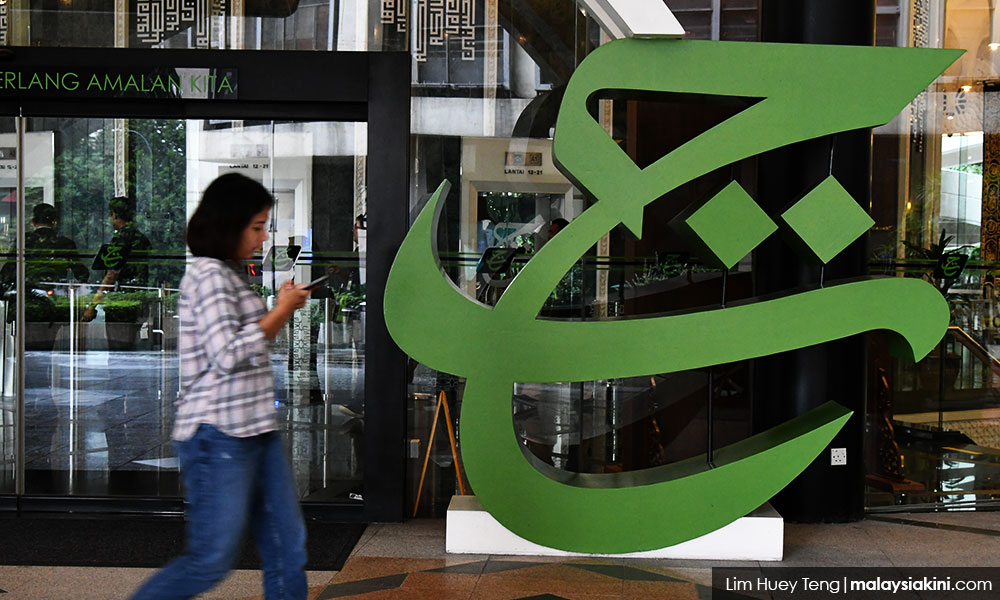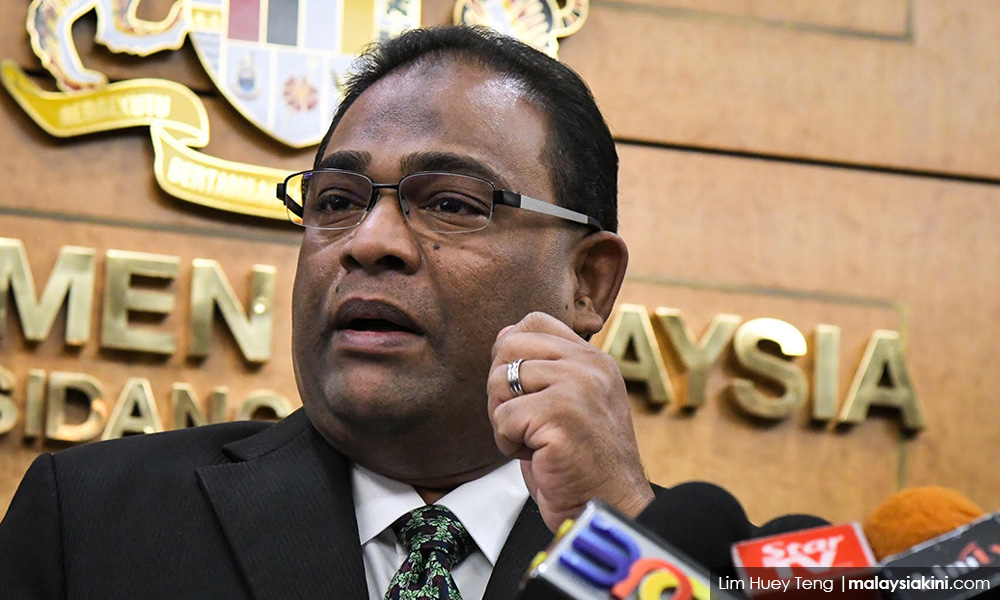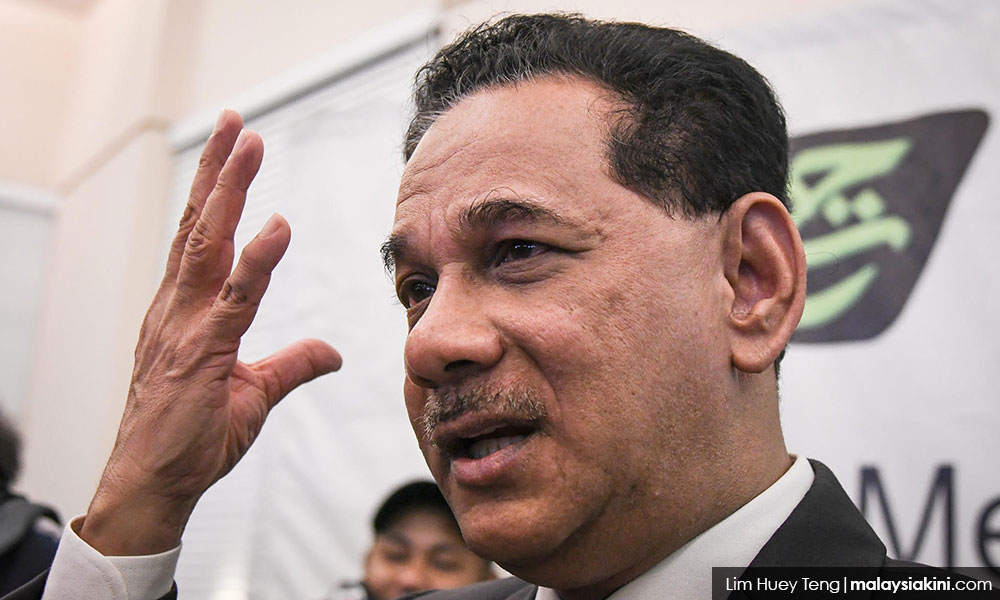
QUESTION TIME | Gross mismanagement of depositors' money amounting to more than RM70 billion has resulted in large losses at Lembaga Tabung Haji, forcing the government, through the Finance Ministry, to mount an RM20 billion rescue plan to take over the fund’s impaired assets at cost.
However, the final cost of the takeover will be smaller because there is a realisable value for the assets. Still, losses could be in the order of RM9 billion initially, which is the current shortfall of assets over liabilities at the fund.
It is a matter of great regret and irony that this kind of nefarious mismanagement, and even criminality, took place for years at a fund which was specifically set up to enable Muslims to perform their pilgrimage in Mecca. This cost was estimated at RM22,450 for one person in 2018, with Tabung Haji subsidising about half of that.
To its credit, the new government has made public the problems at Tabung Haji and the new Tabung Haji management under CEO Zukri Samat has announced a comprehensive plan to tackle the problems, which unfortunately involves a government rescue.
Among worrisome acts is that Tabung Haji engaged in false transactions and directly violated Section 22 of the Tabung Haji Act, which prohibits the payment of dividends unless the value of assets exceeds liabilities. This went on since 2014, according to minister in the Prime Minister’s Department Mujahid Yusuf Rawa.
Former Tabung Haji chairperson, politician Abdul Azeez Abdul Rahim (photo, below), who was previously arrested by the MACC, accused Mujahid of misleading the public, quoting a report by a big four auditor, EY, that the net realisable assets in 2015 exceeded liabilities by RM1.4 billion.

However, net realisable assets are obtained after revaluing assets and are not equivalent to assets which are stated at book value.
A clarifying EY statement said that they were not auditors of Tabung Haji, adding that their reports, “could not have been relied upon for the purpose of dividend declarations by Tabung Haji on Feb 4, 2016, Feb 3, 2017, and Feb 7, 2018, for the fiscal years ended Dec 31, 2015, 2016 and 2017 respectively as the reports for the relevant years were only issued subsequent to the dividend declaration dates.” Also, it pointed to Section 22 of the Tabung Haji Act, which sets out dividend conditions.
But those were not the only misdeeds of Tabung Haji. A PwC report on Tabung Haji revealed many shortcomings and alleged criminal activity. Here’s a list of some compiled from various press reports:
Possible run
- As of October this year, Tabung Haji had losses of up to RM10.2 billion in domestic and foreign equity investments, with liabilities outstripping assets by RM9 billion.
- Tabung Haji's shares in Bank Islam Malaysia Bhd (BIMB) were sold so as to show a profit before being repurchased, which also incurred brokerage fees. While effectively there was no transfer, the transactions showed a gain of RM553 million. This was done to enable dividends to continue to be paid.
- Lembaga Tabung Haji gave returns for deposits as high as 8.25 percent, a move which also turned out to be a reason for its poor financial state of affairs.
- A single depositor had more than RM190 million in the fund that was set up to help Muslims to fulfil their haj. Tabung Haji’s Recovery and Restructuring Working Plan revealed the high concentration of depositors to a small segment where 1.3 percent, or a mere 117,000 of them (depositors), contributed to 50 percent of its deposits. Effectively, these people were benefitting from the high dividend payouts. If these depositors started withdrawing their funds, there could be a run on Tabung Haji, the report said.
- The Edge Weekly reported on Dec 10 that Tabung Haji has yet to receive the full payment of US$910 million (a large sum of RM3.82 billion) for the sale of a 9percent stake in PT TH Indo Plantations to PT Borneo Pacific in 2012 - that’s seven long years ago! Police reports have been made against key officials.
No doubt there were other misdeeds by Tabung Haji but in the meantime, the government has mounted a rescue effort by effectively buying RM19.7 billion of its assets using a special purpose vehicle under the Ministry of Finance.

The underperforming assets will comprise a mix of properties with a yield of less than two percent and equities with an impairment of more than 20 percent. Tabung Haji CEO Zukri (photo) said 75 percent to 80 percent of the assets will be in the form of equities while the remainder will be properties, including the land that was acquired from 1MDB.
In exchange for the assets, the SPV would issue RM10 billion of seven-year sukuk (Islamic bonds) and RM9.9 billion of Islamic redeemable convertible preference shares (RCPS), both of which would carry an effective interest rate of five percent.
Shine the spotlight
What the government has done is to insulate Tabung Haji from the effects of the impaired and low-yielding assets by taking them over for a period of up to seven years and rehabilitating them. Meantime, Tabung Haji will get an interest rate of five percent on this, giving it an income stream of roughly RM1 billion annually.
It is not unusual for the government to guarantee the funds of institutions it sponsors and is affiliated to, especially when it involves the public as depositors. For instance, it guarantees the principal amounts in the EPF and a return of 2.5 percent annually on deposits.
Still, this is yet another demand on taxpayers’ money, which could have been avoided by proper management, transparency, good governance and accountability. Considering that the total number of depositors in Tabung Haji is more than nine million, the government has little choice but to rescue it.
The fault is that of the previous government, which appointed a politician to head the fund and allowed it to operate willy-nilly despite warnings from the central bank, Bank Negara Malaysia.
These and other abuses in places such as 1MDB, FGV and a myriad of other organisations, need to be investigated and the culprits brought to book. It is also important to put into place institutional reforms that would check abuses in the management and oversight of government monies, including those in companies linked to it.
Yet again, it demonstrates the need for a clean, efficient, honest and transparent government which provides all the necessary information to the public to enable them to come to informed opinions about important issues. This will, of course, need legislative reform as well.
It is a matter of great regret that no such reform plan is available for 1MDB yet, although the same PwC that reviewed Tabung Haji did the same for 1MDB after its appointment in May this year with the handing over of its report in early August to the finance minister. Four months later, that report has not been made public.
We do not know for certain how much the losses for 1MDB are. There is no comprehensive account of how the sums embezzled can be returned or what is the future of the Tun Razak Exchange which was being developed by 1MDB.
It is to be hoped that the government will shine a similar spotlight into the dark areas of 1MDB and FGV, where the potential irrecoverable losses are very high.
P GUNASEGARAM is a former editor and equity analyst. E-mail: t.p.guna@gmail.com - Mkini


No comments:
Post a Comment
Note: Only a member of this blog may post a comment.